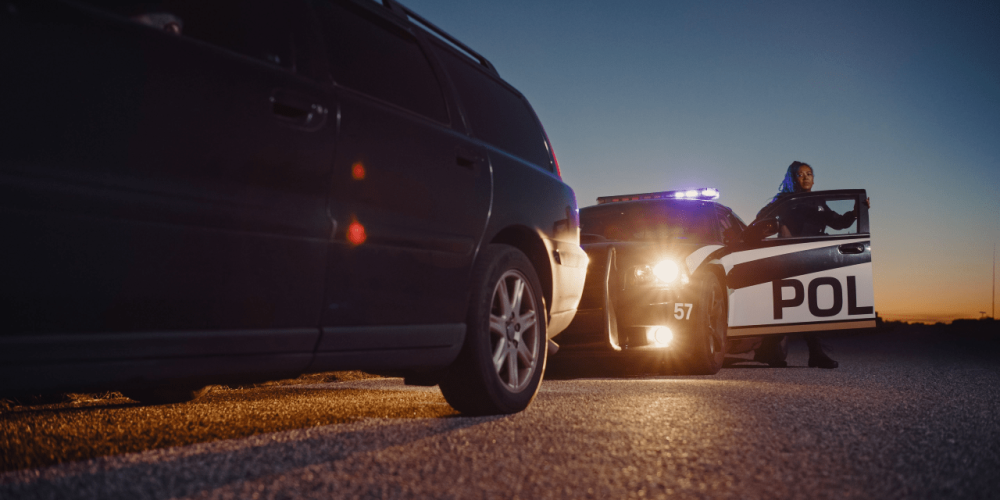DWI First Offense Texas – Key Facts Before You Act
A DWI first offense Texas charge can have lasting effects on your life, even if it’s your first encounter with law enforcement. Texas takes driving while intoxicated seriously, and even first-time offenders face penalties that can impact your license, job, and record. This article outlines what to expect, what penalties apply, and how you can protect yourself after a first-time DWI in Texas.
What Happens After a DWI First Offense in Texas?
Being arrested for a DWI first offense Texas typically starts with a traffic stop, field sobriety tests, and a breath or blood test. If your blood alcohol concentration (BAC) is 0.08% or higher, or if you show signs of impairment, you may be arrested on suspicion of DWI.
Immediate Legal Process:
- Arrest and Booking: After failing sobriety or chemical tests, you’re taken into custody and booked at a local jail.
- Administrative License Suspension: Texas imposes an automatic license suspension, even before your court date.
- Court Proceedings: You’ll receive a date for your arraignment, where you’ll plead guilty or not guilty.
After a DWI first offense Texas, drivers often feel overwhelmed. Understanding the process early can help you make informed decisions moving forward.
Legal Penalties for a First-Time DWI in Texas
The state of Texas imposes strict penalties for a DWI first offense Texas, even when no aggravating circumstances are present.
Standard Penalties May Include:
- Fines: Up to $2,000 for a first offense
- Jail Time: Between 3 days and 180 days (though probation may be granted)
- License Suspension: 90 to 365 days
- Annual Surcharge: Up to $2,000 for three years to maintain your license
- Mandatory Alcohol Education: 12-hour DWI education program
If your BAC was 0.15% or higher, the offense is treated as a Class A misdemeanor, leading to higher fines and longer jail time.
Drivers may also be required to install an ignition interlock device. You can understand ignition interlock requirements and how they apply in your case.
How a First-Time DWI Affects Your Future
Many people assume that a DWI first offense Texas won’t carry long-term effects. However, the impact can be more serious than expected.
Long-Term Consequences:
- Criminal Record: A DWI conviction stays on your record and may affect job applications or housing.
- Higher Insurance Rates: You may be required to file SR-22 insurance, which signals high risk to insurers.
- Employment Risks: Certain professions may suspend or terminate employment due to a DWI.
- Travel Restrictions: Some countries restrict entry to travelers with criminal convictions, including DWI.
Addressing your case early with legal support helps reduce these long-term risks.
Protect Yourself After a DWI First Offense in Texas
Hiring an attorney for a DWI first offense Texas is one of the may help to improve your legal outcome. A knowledgeable lawyer can examine evidence, negotiate with prosecutors, and seek options like deferred adjudication or dismissal. Acting quickly gives you the best chance of reducing penalties, protecting your driving record, and avoiding lasting consequences.
Get Legal Help for a DWI First Offense Texas Charge
Facing a DWI first offense in Texas can be overwhelming, but you don’t have to go through it alone. Even a first conviction can result in lasting damage to your driving record, finances, and reputation. The right legal support can make all the difference in minimizing penalties or fighting the charge altogether.
Take the first step now to protect your future:
- Get a free evaluation with a knowledgeable attorney who understands Texas DWI law
- Explore your legal options before your court date arrives
- Find a DUI attorney who can guide you through every stage of the process
Frequently Asked Questions (FAQs)
1. Will I go to jail for a first DWI in Texas?
Jail time is possible but may be avoided through probation or other alternatives, depending on your case.
2. How long does a DWI stay on your record in Texas?
A DWI conviction remains permanently unless it qualifies for expungement or nondisclosure.
3. Can a first-time DWI be dismissed in Texas?
Yes, with strong legal representation, some DWI charges are reduced or dismissed, especially if errors occurred during the arrest.
4. Do I need an ignition interlock device for a first offense?
It depends on your BAC level and court orders. Many first-time offenders are required to install one.
5. Is a first-time DWI a felony in Texas?
No, it is typically a Class B misdemeanor unless aggravated circumstances are present (e.g., high BAC, accident, child passenger).
Key Takeaways
- A DWI first offense in Texas is a Class B misdemeanor but carries harsh penalties.
- Fines, license suspension, and mandatory education are common consequences.
- BAC of 0.15% or more increases penalties and charge classification.
- Legal help can reduce or dismiss charges and protect your future.
- Acting quickly improves your chances of a better outcome.








